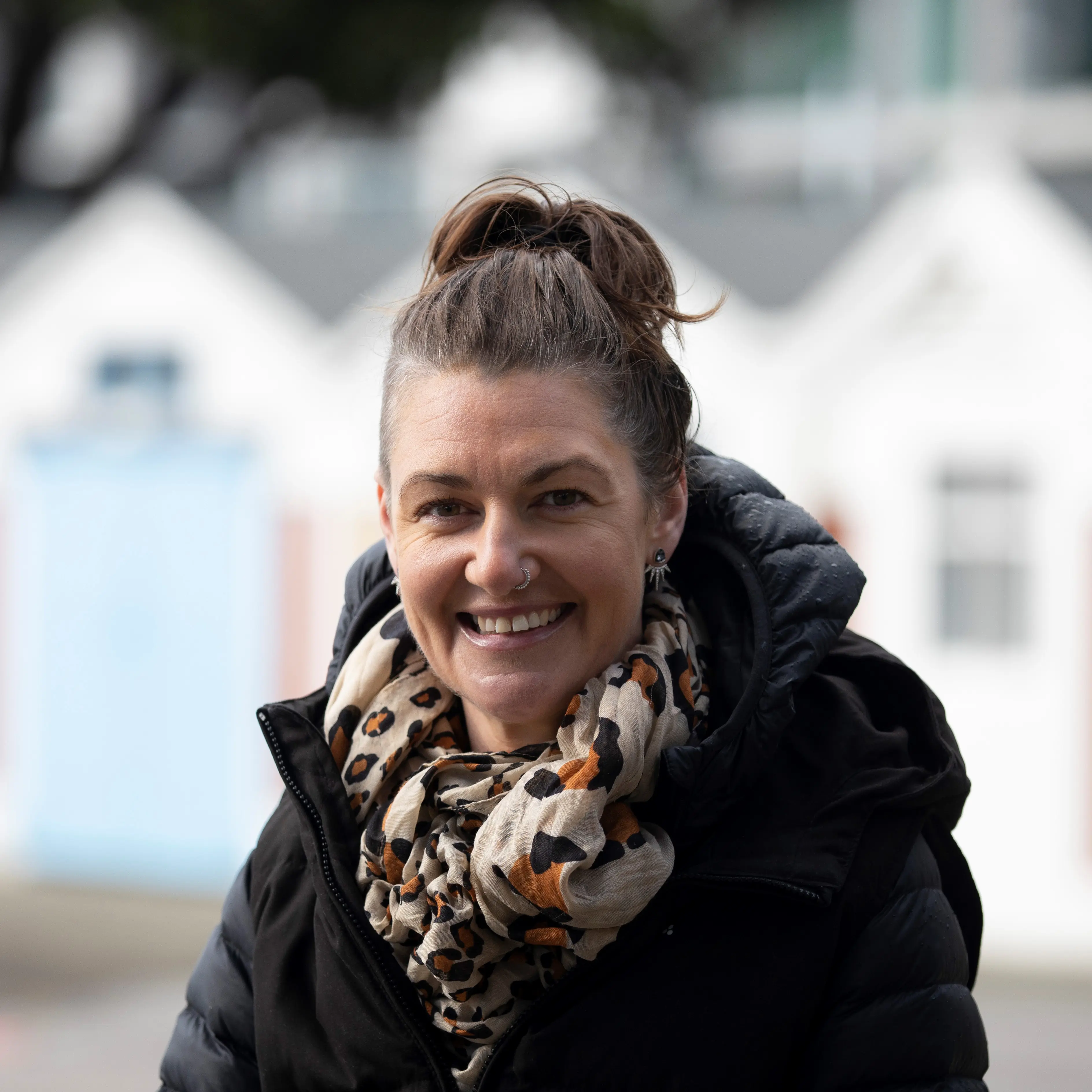Fran McEwen
Founder of The Shift Foundation and advocate for the wellbeing of young women in Aotearoa
Fran McEwen quit school and left home at 16. She looks back on these choices as “pretty poor decisions” that affected her mental health for years.
But, at age 25, wanting to quit smoking and lose some weight, McEwen went for the run that changed her life.
Her mental health improved and she began university study, where she discovered she was far from alone in her lengthy exercise hiatus – figures revealed nearly half of all girls quit organised sport before the end of high school.
Conscious of the restorative power physical activity had brought back to her life, McEwen made it her life’s mission to find ways to encourage young women to remain active through their teens and focus on improving their mental health and wellbeing.
It was in 2015, while writing her research paper “Teenage Girls’ Lived Experience of Physical Activity and Sport in Aotearoa” for her Bachelor of Arts in Sociology, that McEwen discovered the multitude of barriers young women face as they transition into secondary school – increasing competition, bullying and lack of self-confidence
She also learned that quitting sport could be a turning point for many; a point after which they would lose vital self-confidence and connections.
“Being active helps to build social-connectedness, positive mental health and a sense of community, which is really important for women and girls,” McEwen has said. “It creates self-esteem and body confidence, leadership skills and good health habits. I believe it is an awesome vehicle to being the best version of yourself.”
In 2016, in an effort to keep more young women active, McEwen sought, and was awarded, funding to run a pilot programme through Wellington City Council, targeting ages 12 to 20.
The idea was to remove the barriers that contribute to young women being less active by providing them with fun, social, low-cost opportunities that would empower them through physical activity, wellbeing, and leadership programmes. It would be led by inspiring female youth workers.
The idea was called Shift – “Shift your body, Shift your mind.”
The pilot was so successful that within a year Shift became a charitable foundation.
Shift programmes now run across the entire Wellington region – in partnership with 27 schools and dozens of other health, wellbeing, and physical activity providers.
Already, McEwen’s efforts and those of the Shift team have inspired about 10,000 young women to focus on improving their wellbeing. They have also encouraged these young women to establish healthy habits, gain confidence in themselves, and provided them with all-important positive social connections and mentors.
McEwen knows first-hand the impact that stopping exercise can have on a person’s mental health.
While she grew up in Upper Hutt in what she describes as the quintessential 1980s Kiwi childhood, like so many other girls her active side slipped – and her mental health alongside it – during troubled teenage years.
At 16, she fell out with her family, left school, and moved out of home. She embarked on a “relatively unhealthy” life.
“I made so many terrible mistakes as a young woman,” she has said. “I want to support other young women to make better choices.
“In my teenage years, I really felt like I lost connection with family, I had lots of challenges with the kind of traditional education system, lived experience of mental ill-health.
“I think if I looked back now I would have loved to have people like the Shift Coordinators in my life – somebody that I trusted, that I could talk to, that I could build a strong relationship with. Somebody that told me anything was possible and that I could achieve great things.
“So, I guess in some ways I feel like I am trying to create an organisation that provides those types of mentors for young women.”
McEwen’s taken on some pretty drastic challenges to go about cementing her own self-belief – including running a 165km six-day ultramarathon in the Middle Eastern Desert in Oman, during which she raised $6000 for the Shift Foundation.
McEwen says the event was “probably more mentally challenging than physically challenging”.
“I guess the thing I got out of it was this sort of deep self-belief of what I am capable of, both physically but also mentally.”
It’s the same kind of self-belief she wants to instil in Shift participants.
“I sort of see Shift as providing opportunities and experiences for young women to grow, and to learn to be themselves, and to flourish,” she says. “I love the word flourishing because it reminds me of nature and how you plant a seed and feed it, and that it kind of blossoms.”
McEwen’s work with Shift received international recognition when she landed a placement on the 2016 US Department of State and ESPNW Global Sports Mentoring Programme. It was there that she developed the framework for the Shift Foundation. She was also invited back to help support another group of women leaders on the programme.
In 2017, Shift received the Outstanding Community Recreation Programme award at the New Zealand Recreation Association Awards.
And in 2018, it received the Community Impact award at the NZ Sport and Recreation Awards.
McEwen’s work inspiring the country’s young women doesn’t stop in her voluntary role as Chief Executive of the Shift Foundation – she’s also committed to the cause in her day job as Active Recreation Lead for Sport New Zealand.
McEwen says she is motivated by the idea of helping all young women to develop the confidence it took her so long to discover.
“If I could talk to my own teenage self, I would probably tell myself that I am enough and that I am magical and wonderful just how I am. And that it’s okay to just be my authentic self.”


